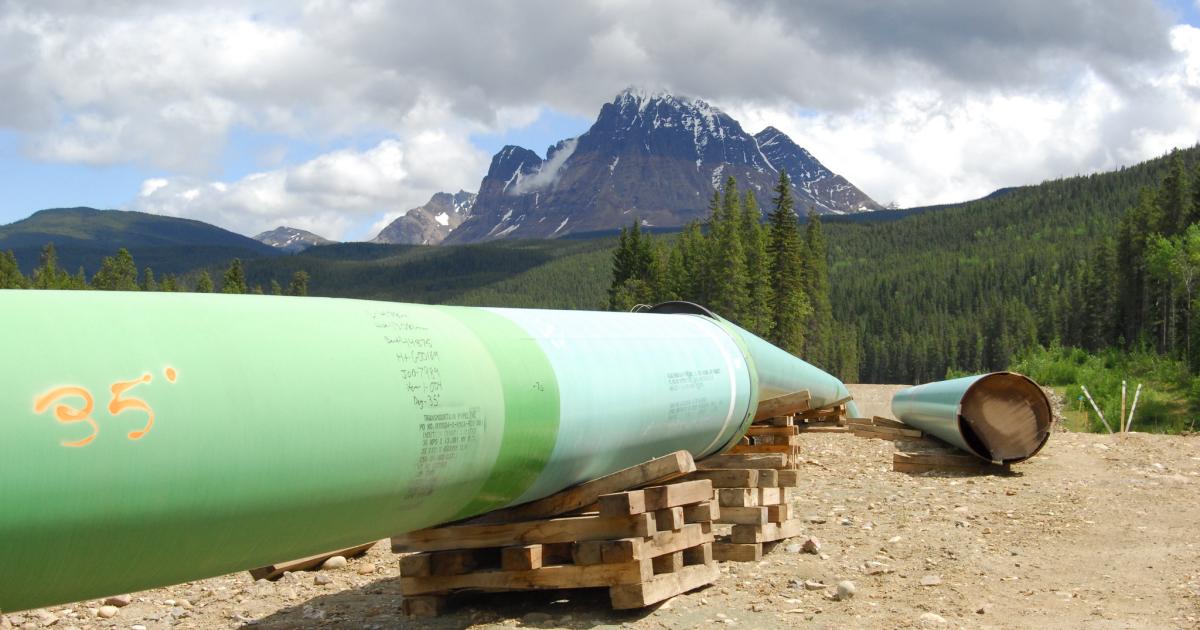It’s been a while since we last discussed the Keystone XL Pipeline—the controversial proposed extension of the existing Keystone Pipeline System designed to transport crude oil from Alberta, Canada, to Nebraska.
The project was set to expand the pipeline’s capacity to transport up to 830,000 barrels of oil per day over 1,210 miles. Not only would it create a more direct route for Canadian oil, but provisions were also in place to carry American oil from the Bakken formation in Montana and North Dakota.
The last time we covered the pipeline, we highlighted how President Biden’s cancellation of the project cost thousands of jobs. According to a report by the Department of Energy (DOE) in December (released quietly without fanfare), the Keystone XL project could have created between 16,149 and 59,000 jobs and generated an economic impact of $3.4 to $9.6 billion. The government’s 2014 assessment predicted 3,900 direct jobs and 21,050 total jobs during the two-year construction period.
Now, it appears the project could make a comeback under a Trump administration.
According to insiders close to Trump’s transition team, the Keystone XL Pipeline is at the top of his Day One agenda. Trump views resurrecting the project as a way to reinforce his pro-oil stance from his campaign, while also directly challenging President Biden’s decision to revoke the project’s approval. Biden’s move to block the pipeline was met with strong opposition from the climate movement, but also with disappointment from Canadian Prime Minister Justin Trudeau, who saw it as a setback for U.S.-Canada relations and Canada’s energy sector.
During his campaign, Trump didn’t mince words about Biden’s decision. “Why does Biden kill the Keystone [XL] pipeline and approve the single biggest deal Russia’s ever made, Nord Stream 2?” he asked during a debate with Vice President Kamala Harris, referring to the pipeline that connects Russia to Europe, which was later sabotaged in 2022. “Because they’re weak and ineffective.”
The cancellation of the Keystone XL pipeline was a significant diplomatic blow to Trudeau, who emphasized the economic and energy security benefits of the U.S.-Canada energy relationship. “The prime minister underscored his support for energy workers,” his office stated.
Trump, in contrast, promises a return to pro-energy policies, which could offer much-needed stability to industries like oil and gas. “Canceling the Keystone XL pipeline not only sabotaged our relationship with Canada but also sent a message that industries could be targeted at any moment. It disincentivized investment and created fear.”
As Trump’s team looks to reverse Biden’s policies, they’ll face a long road ahead to rebuild the damage done. One major issue still lingering from Biden’s decisions is the depletion of the Strategic Petroleum Reserve. As of today, the U.S. reserve holds 259 million barrels less than when Biden took office. The emergency supply, with a capacity of 714 million barrels, now stands at just 379 million—its lowest level in 41 years.
As Team Trump looks to rebuild and restore America’s energy strength, the Keystone XL Pipeline may be a crucial piece of that effort.
